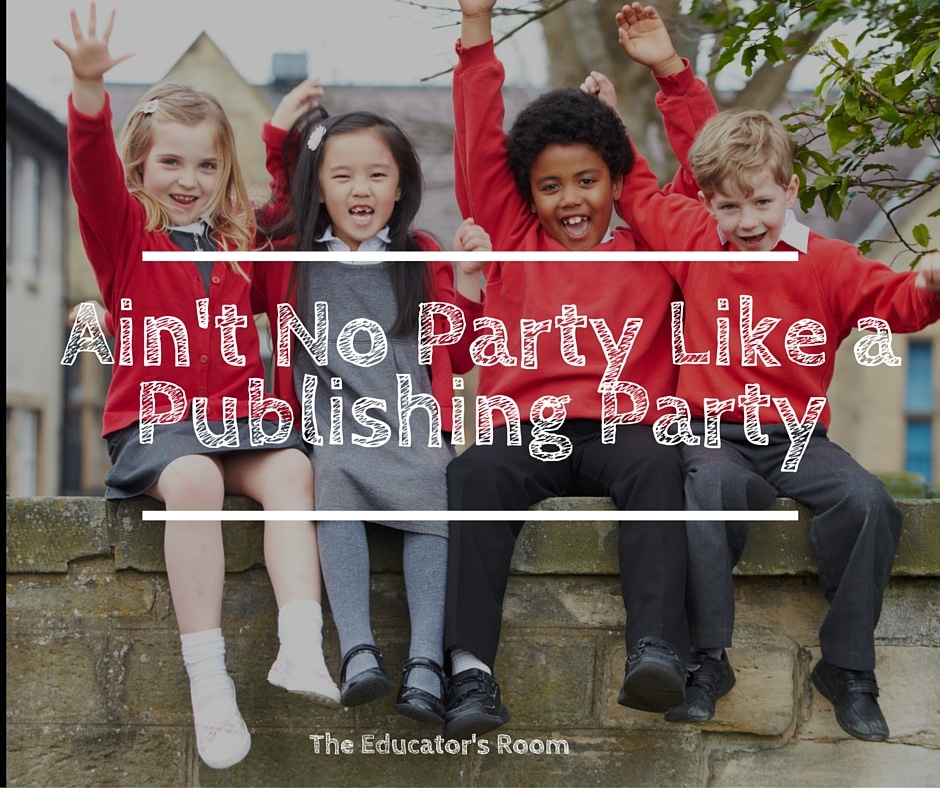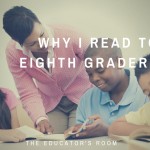Celebrating Student Work with an Authentic Audience
Last month my students finally finished their book reviews. It was our first full writing unit of the year, and at times it was difficult for them. It was a very different type of writing than anything they’d done before.
When their confidence or interest flagged however, I was able to give them a boost by reminding them of our goal. At the end of our unit, we would be presenting our book reviews to guests from Lee and Low Books, an independent publishing company in New York City focused on multicultural literature for children and young adults.
Hooking Students on a New Unit
This celebration, and the authentic audience, were a key part of the writing unit from the very beginning. I like to introduce new units as a problem to solve or question to answer. With our book reviews, I introduced my students to the diversity gap in children’s literature. I then asked them to help solve this problem by writing reviews of books featuring characters of color. They couldn’t wait to share them with Lee and Low Books!
Currently my students are working on informational texts about Mexico. To begin we talked about some of the stereotypes and misconceptions about Mexico (think Trump) and I asked them, how can we teach people all about the beautiful history, culture and geography of this country? When we are done, we will present our books to Mano a Mano, a non-profit “dedicated to celebrating Mexican culture and promoting the understanding of Mexican traditions.”
A Closer Look at the Writing Process
No matter the unit, our writing process is generally the same. We follow the process laid out by Teacher’s College Reading and Writing Project. We begin by immersing ourselves in exemplars of the text we’ll be writing. We use these exemplars to generate criteria for our work. With our book reviews we noticed the use of strong and persuasive language, how writers summarize the books they reviewed, and used details from the books to support their opinions.
Next students have opportunities to practice the style of writing they’ll be working on and collecting ideas. They might generate lists or word webs in their writer’s notebooks. From there the students pick an idea that interests them most and begin drafting. Throughout the steps of the drafting process, the students and I complete a shared writing. The shared writing allows me to model solid writing and mechanics, while mainly using student ideas.
As the students draft, I conference to provide encouragement and feedback. I try to check in with each student at least three times while they’re drafting. Students will share their writing with partners, groups or the whole class at various stages as well. Shares from stronger writers can provide models for other students. Sharing also means more opportunities for feedback. By the end of our first units, students get very comfortable giving and receiving feedback.
When it’s time to revise and edit, students work closely with one partner. I generally try to pair stronger/weaker writers. Using a rubric and a checklist generated at the start of the unit, even students who might struggle with writing still generally provide meaningful feedback to their peers. I make sure to circulate during these conversations however so that all students get at least one piece of feedback from me.
Why Celebrate with a Publishing Party?
At first, it might seem that a publishing party is an unnecessary or even frivolous use of time, but I’ve found it to be an essential part of the writing process. As adults, we rarely get recognized or celebrated for our hard work. And it sucks. For kids, school is their work and it should be celebrated whenever possible.
If kids are really engaged in a project, the final product becomes very meaningful to them. Thus it’s very important to give them a chance to share it. Sometimes a few students may not have been as excited about an assignment, but nonetheless, I want to send a message to the class that their work matters.
Publishing parties are a great way to engage families in their children’s learning. Inviting families shows them what you’ve been working on for the past month or so and keeps them invested as partners in the work ahead. For many kids, there’s no greater joy than a chance to share their work with Mom, Dad, Tia or Nana.
Adding an authentic audience is only a recent addition to publishing parties in my classroom, but it’s payoff has been incredibly powerful. It is sometimes difficult to plan ahead successfully, but when Lee and Low came to listen to our book reviews in December, I knew I had to make it a consistent practice.
Visitors from the “real world” tell your students that their work has real meaning. I suspect that students sometimes feel that their teachers are just making up writing assignments to torture them. An authentic audience shows your students their work can in fact make a difference in the world. This audience also gives your students a chance to hear feedback from a new voice. That feedback carries a special weight when it comes from an expert like a book publisher or Mexican-American artist.
Teachers spend a lot of energy thinking about differentiation, rubrics, and essential questions. These are undoubtedly vital parts of planning a successful unit. What I’ve seen recently is that a celebration with an authentic audience is just as essential.




